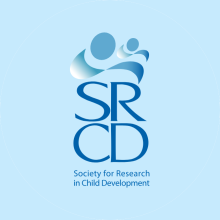April 2016 Spotlight on the SRCD Policy Fellow: Marina Mendoza, Ph.D.
2015-2016 Federal Executive Branch Policy Fellow
I have a regular morning commute on the metro, crammed against well-dressed individuals reading newspapers and listening to their devices. The metro ride is the only monotonous part of my day; as soon as I step into my placement at the National Institute of Justice (NIJ), I swell up with excitement because no two days are alike, and I am constantly challenged to think differently.
NIJ, the research, development, and evaluation arm of the U.S. Department of Justice, is committed to using science to advance knowledge and understanding of issues related to crime and justice. I work in the Office of Research and Evaluation in the Violence and Victimization Research Division, and focus on Teen Dating Violence, Children Exposed to Violence, and Bias Crime research portfolios. This is one reason why my days are so interesting, I get to work across multiple topics and see how a Federal research agency approaches each one. For example, teen dating violence is a long-standing portfolio for NIJ. The agency has invested more than $10 million over the past decade to support external grantees doing research in a number of areas related to teen dating violence.
The Bias Crime portfolio on the other hand is relatively new. Funded projects tend to focus on trends in hate crimes and the development of measures to assess hate crime victimization. One of my projects is working with NIJ scientists to compare bias crime and domestic radicalization research to identify distinctions and linkages between the two. The research for bias crimes and domestic radicalization may be different but similarities such as the fact that they both occur at relatively low frequencies but have a high impact on victims and communities can provide shared insights. We hope this will bring new perspectives to ongoing research, prevention, and victim service efforts in both bias crime and domestic radicalization.
NIJ is committed to the idea that basic and applied research can make a difference in individual lives and create safer communities. NIJ scientists actively engage with academic scholars, researchers, advocates, and other experts in the field to ensure that proposed research agendas are responsive to the needs of victims and communities. It is eye opening for me to observe how research agendas are developed in ways that ensure they are valuable for the individuals working to prevent and respond to crime, whether they are researchers, practitioners, or policy makers. I am grateful to the NIJ scientists for giving me the opportunity to participate in these discussions as part of my fellowship.
I am continually amazed at the amount of collaboration and number of partnerships it takes to address many of the issues related to crime and victimization. Through this fellowship, I am gaining an appreciation for the complexity of responding to these issues, particularly within the decentralized structure of the Federal government. Being decentralized inherently means there are many “siloed” efforts addressing the same issues. As a way to coordinate efforts, interagency workgroups provide a venue for the exchange of information about relevant research, evaluation, and program efforts across multiple government agencies. Being a part of these interagency workgroups allows me to identify ways to reach across boundaries and encourage creative, collaborative policy and practice solutions to promote the best possible outcomes for individuals and communities.
Lastly, I am learning how to communicate scientific research for a wide range of audiences. I work with talented professional writers who routinely support scientists on various dissemination products to ensure that the work of NIJ is accessible to practitioners and policy makers. Going from technical academic writing to pithy social media communication and plain language reports has been a challenge. The editing rounds with communications staff were discouraging at first, but seeing a final product that maintains scientific integrity while being clear for a general audience is satisfying. I am also improving my oral communications skills with several presentation opportunities at conferences. I look forward to gaining more experience in translating rigorous scientific research for practice and the public. It is a critical step in ensuring that researchers, practitioners, and policy makers advance what works best in reducing crime, violence, and victimization in our communities.
Every day is different and I am grateful for both the lessons and challenges. I am extremely appreciative to SRCD for this incredible opportunity to expand the scope of my background and training to promote research for the benefit and safety of children, youth, and families across the nation.
